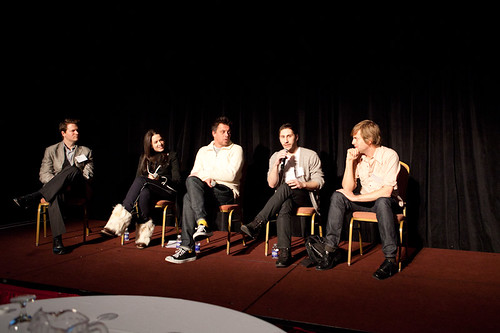“Queries received in 2010: around 10,000. New clients taken on from query (no referral): 0.” […] Those 10,000 queries represent approximately 10,000 writers who have dreams of seeing their book in print, who’ve likely spent months on a manuscript, who are desperately seeking a chance at traditional publication… So what does that say about the query system? Does it really work anymore? Is the system slowly dying?
Of course the system isn’t dead yet. From time to time, I still hear reports of writers landing agents through cold-querying. But if the statistics of gaining an agent through querying are slim and growing narrower, what can writers do to increase their chances of getting an agent? (Is the Query System Dying?)
This sobering post from Jody Hedlund (author of The Preacher’s Bride) echoes an increasingly familiar publishing mantra, “Adjust, adjust, adjust. Connect, connect, connect.” It’s yet another reminder that the days of the solitary author penning in a garret are numbered. Correction. They may be numbered if s/he wants to secure a publishing contract, build an audience and possibly become a professional writer.
I’m not horrified to read Hedlund’s post or Rachel Gardner’s post that prompted this reflection on the demise of the conventional query system. As a newbie unaccustomed to the “old way” of querying and well accustomed to merits of the social web, I actually see this transition as a potential improvement. Or at least an improvement for me and writers like me. And I think that Hedlund’s advice makes sense:
- Seek out new agents through reputable literary agencies.
- Realize the query system may not be enough.
- Shift to a new way of relating to agents.
So where does that leave me on the week of my first foray into agent pitching? I’m optimistic. The query system hasn’t failed me, and I’m confident that I’ll find the perfect agent. Perhaps not this week, or even in the next few months, but I’m learning more every day about which agents are embracing the publishing industry transition rather than lamenting the change and clinging to the old. I am learning what sort of agent relationship is best suited to my strengths and ambitions. And I am learning how important the right match will be in the years to come. Tomorrow’s query system sounds just great!












